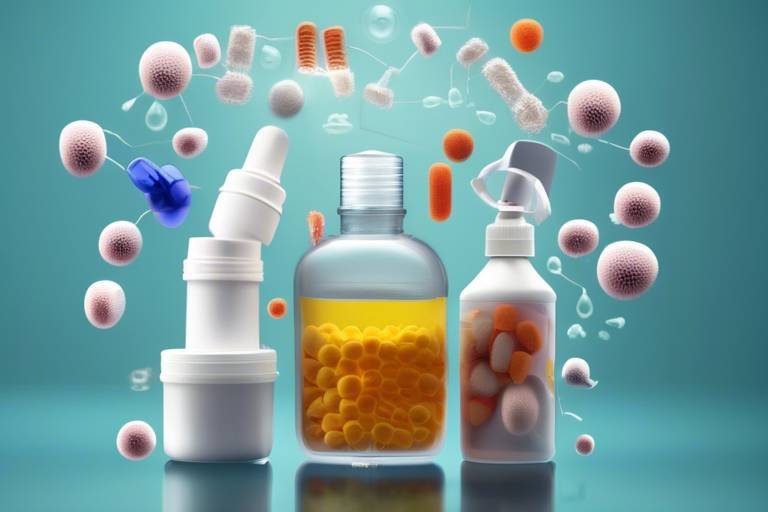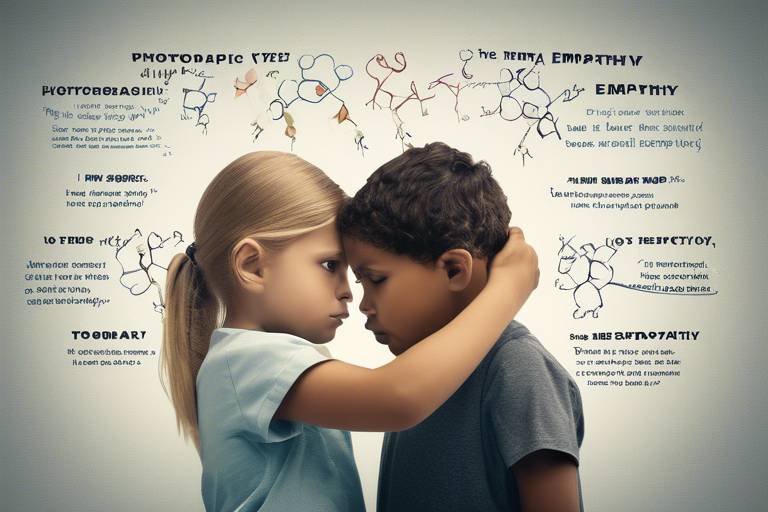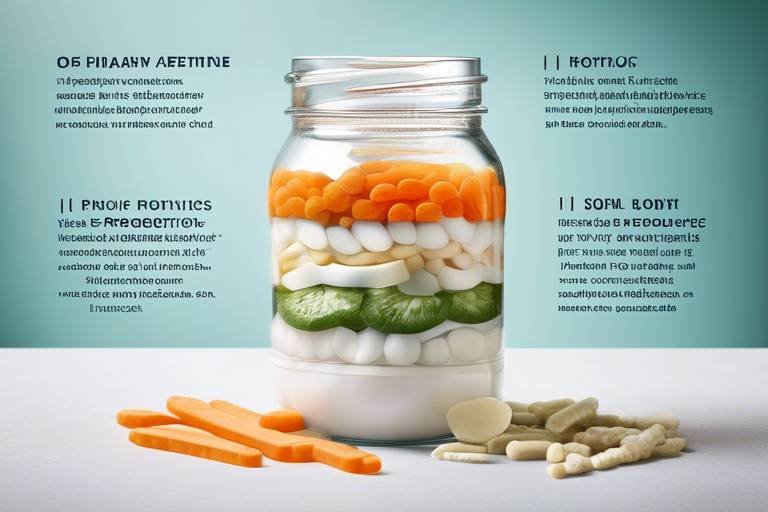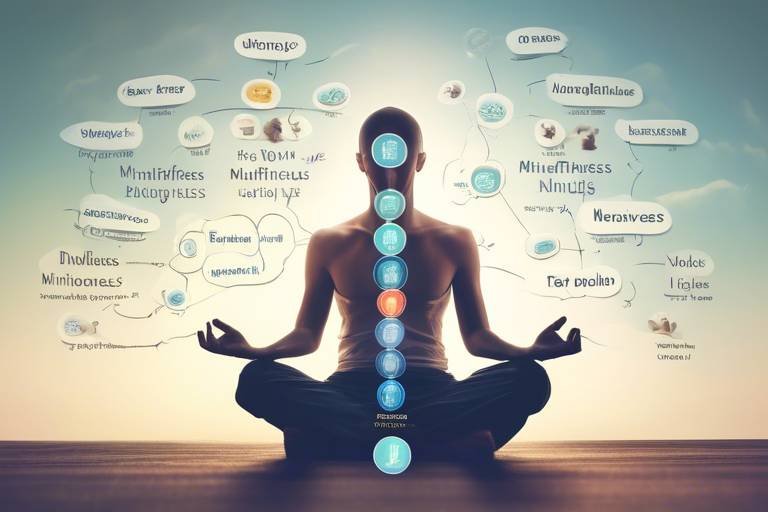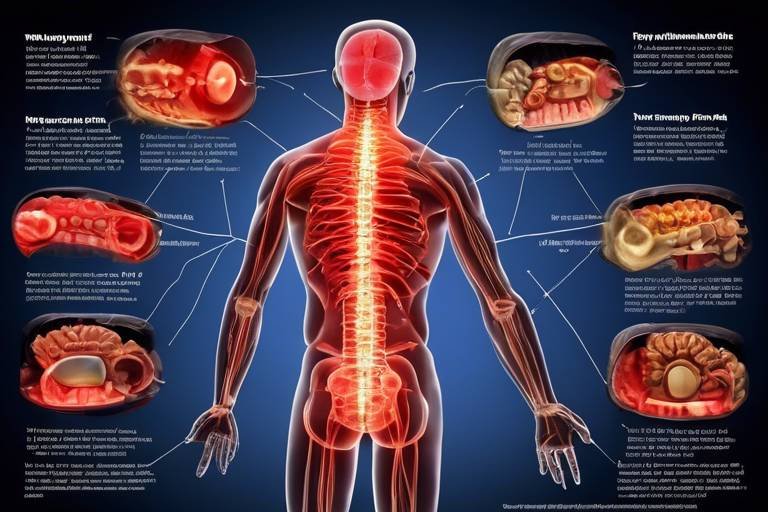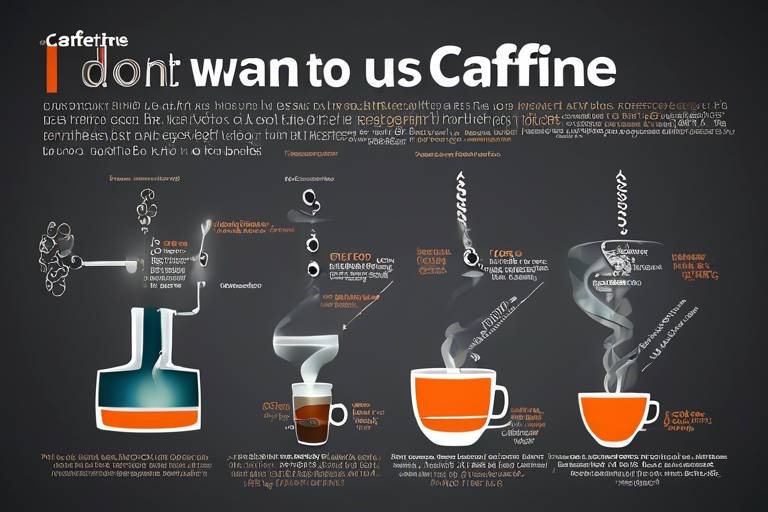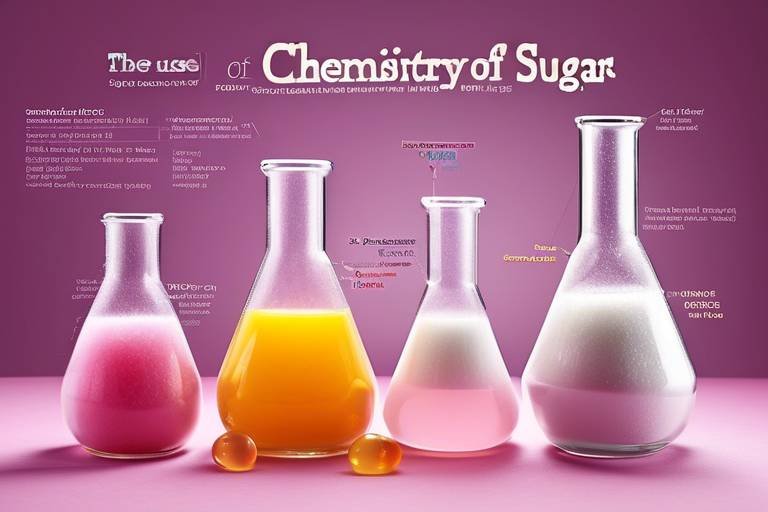The Biology of Hydration - Why Water Matters
Water is not just a simple liquid; it is the essence of life. Imagine a world without it—plants wilting, animals struggling, and humans facing severe health issues. Water plays a vital role in almost every biological process, making it one of the most important substances on our planet. From the moment we wake up to the time we go to bed, our bodies are constantly in need of this precious resource. But why is hydration so crucial, and what happens when we neglect it? Let's dive deep into the biology of hydration and uncover its significance for our health, cellular function, and the environment.
At the cellular level, water acts as a solvent for biochemical reactions, allowing nutrients to be transported efficiently throughout the body. Think of water as the highway on which essential molecules travel to their destinations. Without adequate hydration, these processes can become sluggish, leading to decreased cellular health and functionality. Water also plays a key role in maintaining the structure of cells. It helps to keep them firm and functioning optimally. Furthermore, it regulates temperature, which is crucial for enzymatic activities that drive our metabolism. In essence, hydration is like the oil in a well-running engine—without it, everything can seize up.
Dehydration can wreak havoc on our bodies, leading to a plethora of health issues. From simple fatigue to severe complications, the effects can be far-reaching. When we don't drink enough water, our bodies begin to signal distress, and the symptoms can escalate quickly. Common signs of dehydration include:
- Thirst
- Dry mouth
- Decreased urine output
- Fatigue
- Dizziness
Ignoring these signals can lead to more serious conditions such as kidney stones, urinary tract infections, and even heat-related illnesses. The long-term effects of inadequate hydration can be detrimental, potentially leading to chronic diseases. Therefore, it is vital to listen to our bodies and prioritize hydration.
Recognizing the signs of dehydration is crucial for prevention. While the symptoms may start off mild, they can escalate quickly if not addressed. For instance, a simple thirst can turn into a headache or dizziness, and if dehydration progresses, it can lead to confusion and even unconsciousness. Understanding these symptoms can empower you to take action before it’s too late.
There are two types of dehydration: acute and chronic. Acute dehydration occurs suddenly, often due to factors like intense exercise, heat exposure, or illness. It can be life-threatening if not treated promptly. On the other hand, chronic dehydration develops gradually over time, often going unnoticed until it leads to significant health issues. Recognizing the differences between these two types can help you manage your hydration effectively.
Some groups are more susceptible to dehydration than others. The elderly, for instance, may not feel thirsty even when their bodies need water, making them particularly vulnerable. Similarly, athletes can lose significant amounts of fluids through sweat during intense workouts, putting them at risk if they don't replenish their hydration adequately. Understanding the unique hydration needs of these populations is essential for promoting overall health.
For athletes, proper hydration is not just a recommendation; it’s a necessity. Staying hydrated can significantly influence endurance, strength, and recovery. Think of hydration as the fuel that powers your performance. Dehydration can lead to a decrease in strength and endurance, making workouts feel more strenuous than they should be. Moreover, it can slow down recovery times, leaving athletes at a disadvantage. If you want to perform at your best, hydration should be at the top of your priority list.
When and how much water you drink can significantly affect your hydration levels. It’s not just about chugging a bottle of water when you feel thirsty. Proper hydration timing can enhance performance and overall well-being. For instance, drinking water before, during, and after exercise can help maintain optimal fluid balance and prevent dehydration.
Athletes require tailored hydration strategies to maintain peak performance. Recommendations can vary based on the type of activity, duration, and environmental conditions. For example:
| Activity Type | Fluid Intake Recommendations |
|---|---|
| Short-duration exercise (< 1 hour) | Water is sufficient |
| Moderate exercise (1-3 hours) | Electrolyte drinks recommended |
| Prolonged exercise (> 3 hours) | Water and electrolyte drinks necessary |
Incorporating hydration into your daily routine is essential for everyone, not just athletes. Here are some practical tips to ensure you stay adequately hydrated throughout the day:
- Carry a reusable water bottle with you.
- Set reminders to drink water at regular intervals.
- Infuse your water with fruits or herbs for added flavor.
- Eat water-rich foods like fruits and vegetables.
By making hydration a priority, you’re not just quenching your thirst; you’re investing in your overall health and wellness.
1. How much water should I drink daily?
While individual needs vary, a common recommendation is to drink at least 8 glasses (64 ounces) of water a day. However, factors like activity level, climate, and health conditions can affect your needs.
2. Can I hydrate with beverages other than water?
Yes! Beverages like herbal teas and natural fruit juices can contribute to your hydration. However, be cautious with sugary drinks, as they may not be as beneficial.
3. What are the signs of severe dehydration?
Severe dehydration can cause symptoms like extreme thirst, dry skin, rapid heartbeat, and confusion. If you or someone else experiences these symptoms, seek medical attention immediately.

The Role of Water in Cellular Function
Water is often referred to as the essence of life, and for good reason. Every single cell in our body relies on water to function properly. Think of water as the lubricant that keeps the machine of our body running smoothly. Without it, cellular processes would grind to a halt. Water acts as a solvent, dissolving various substances and allowing biochemical reactions to occur. This is crucial because many of the nutrients we consume need to be dissolved in water to be absorbed by our cells.
Moreover, water plays a pivotal role in nutrient transport. Imagine your body as a bustling city, where water is the highway that facilitates the delivery of essential nutrients to every corner. As blood, which is largely composed of water, circulates through the body, it carries oxygen and nutrients to cells while also removing waste products. This constant flow is vital for maintaining cellular health and functionality.
But the importance of water doesn't stop there. It also helps to regulate temperature and maintain homeostasis. When we sweat, for instance, we lose water, which cools our body down. This process is essential during physical exertion, as it prevents overheating and ensures that our cells can continue to function optimally. In fact, studies have shown that even a slight decrease in hydration can impair physical performance and cognitive function.
To emphasize the significance of hydration, consider the following table that outlines the various functions of water in cellular processes:
| Function | Description |
|---|---|
| Solvent for Biochemical Reactions | Water dissolves nutrients and facilitates chemical reactions within cells. |
| Nutrient Transport | Water carries essential nutrients and oxygen to cells and removes waste products. |
| Temperature Regulation | Water helps maintain body temperature through sweating and respiration. |
| Cell Structure | Water is a key component of cell structure, providing turgor pressure in plant cells. |
In summary, the role of water in cellular function is multifaceted and critical. From dissolving nutrients to transporting them throughout the body, water is indispensable for maintaining health and vitality. Without adequate hydration, our cells cannot perform their necessary functions, leading to a cascade of health issues. So, the next time you reach for that glass of water, remember that you’re not just quenching your thirst; you’re fueling your body at the cellular level.
- How much water should I drink daily? The general recommendation is about 8-10 cups, but individual needs may vary based on activity level and climate.
- Can I hydrate with beverages other than water? Yes, while water is the best choice, other beverages and foods with high water content can contribute to your hydration.
- What are the signs of dehydration? Common signs include thirst, dry mouth, fatigue, and dark urine. Severe dehydration can lead to confusion and dizziness.

The Impact of Dehydration on Health
Dehydration is more than just a minor inconvenience; it can have serious repercussions on our health. When our bodies lose more fluids than we take in, we enter a state of dehydration that can lead to a myriad of health issues. Think of water as the oil in a well-tuned engine; without it, everything starts to grind and eventually breaks down. From fatigue to confusion, the effects can be both immediate and long-lasting, impacting our daily lives in ways we often overlook.
One of the most alarming aspects of dehydration is how it can sneak up on us. Many people are unaware that they are dehydrated until they start experiencing symptoms. For instance, a common sign is thirst, but by the time we feel thirsty, our bodies may already be in a deficit. Other symptoms include:
- Dry mouth
- Decreased urine output
- Fatigue or weakness
- Dizziness or lightheadedness
These symptoms can escalate quickly. If not addressed, dehydration can lead to more severe complications, such as kidney stones, urinary tract infections, and even heat-related illnesses. It's crucial to recognize that dehydration can affect anyone, regardless of age or activity level. However, certain populations are particularly vulnerable.
Dehydration can be classified into two main categories: acute and chronic. Acute dehydration occurs suddenly, often due to intense physical activity, illness, or extreme heat. It can be life-threatening if not treated promptly. On the other hand, chronic dehydration develops gradually over time, often due to insufficient water intake or a lack of awareness about hydration needs. This slow decline can lead to long-term health issues, making it essential to maintain a consistent hydration routine.
For certain groups, the risks of dehydration are even higher. The elderly, for instance, often have a diminished sense of thirst, making it easier for them to become dehydrated. Athletes, meanwhile, lose significant amounts of water through sweat and require careful monitoring of their fluid intake. Understanding the unique hydration needs of these groups can help prevent the adverse effects of dehydration.
Consider the following populations that are particularly at risk:
- The Elderly: They may experience decreased thirst signals and have medications that increase urine output.
- Athletes: Intense physical activity leads to substantial fluid loss, especially in hot weather.
- Children: They may not recognize their thirst as quickly as adults do, making hydration crucial during play.
In conclusion, the impact of dehydration on health cannot be overstated. It affects not just our physical performance but also our mental clarity and overall well-being. Staying aware of our hydration status and recognizing the signs of dehydration are key steps in maintaining a healthy lifestyle. After all, water is not just a drink; it's a vital component of our health.
Q: How much water should I drink daily?
A: While individual needs vary, a general guideline is to aim for about 8-10 cups (2-2.5 liters) a day. However, factors such as activity level, climate, and overall health can influence this amount.
Q: What are the signs of dehydration?
A: Common signs include thirst, dry mouth, fatigue, dizziness, and decreased urine output. If you notice these symptoms, it's important to rehydrate promptly.
Q: Can I hydrate with beverages other than water?
A: Yes! While water is the best option, other beverages like herbal teas, and electrolyte drinks, and even fruits and vegetables with high water content can contribute to your daily hydration.

The Symptoms of Dehydration
Recognizing the signs of dehydration is crucial for maintaining your health. Imagine your body as a well-oiled machine; when it lacks the essential lubricant—water—it starts to grind and sputter. The symptoms of dehydration can vary from mild to severe, and being aware of them can help you take action before things get out of hand. Initially, you may experience simple signs like thirst and a dry mouth, which are your body’s way of waving a red flag, urging you to hydrate. But what happens when you ignore these early warnings?
As dehydration progresses, you might notice decreased urine output. When you're well-hydrated, your urine should be a light yellow; if it’s darker, that's a clear indicator that your body is holding onto water. Other symptoms can include fatigue, dizziness, and even headaches. It’s almost like your body is trying to send you a text message, but the signal is weak because it’s running low on resources!
In more severe cases, dehydration can lead to serious complications such as rapid heartbeat, confusion, and fainting. It’s essential to recognize these symptoms early on, especially if you find yourself in a hot environment or engaging in strenuous activities. Here’s a quick rundown of common symptoms:
- Thirst: Your first sign that you need water.
- Dry mouth: A clear signal that hydration is needed.
- Fatigue: Feeling unusually tired can be a sign of inadequate fluid intake.
- Dizziness: A lack of water can affect your balance and coordination.
- Decreased urine output: Dark-colored urine is a warning sign.
Understanding these symptoms not only helps in prevention but also empowers you to take control of your hydration needs. It’s like having a personal hydration coach whispering in your ear, reminding you to sip that water bottle throughout the day. So, the next time you feel that first pang of thirst, take it seriously! Your body is counting on you to keep it running smoothly.
Q: How much water should I drink daily?
A: While it can vary based on activity level and climate, a general guideline is to aim for at least 8 glasses (about 2 liters) of water a day.
Q: Can I hydrate through food?
A: Absolutely! Foods like fruits and vegetables, such as watermelon and cucumbers, have high water content and can contribute to your overall hydration.
Q: What should I do if I experience severe dehydration?
A: If you notice severe symptoms like confusion or fainting, it’s important to seek medical attention immediately. Rehydration through IV fluids may be necessary in such cases.

Acute vs. Chronic Dehydration
When it comes to dehydration, understanding the difference between acute and chronic dehydration is crucial for effective management and prevention. Acute dehydration happens suddenly, often due to factors such as intense physical activity, heat exposure, or a sudden illness that causes excessive fluid loss. Imagine running a marathon on a hot day without enough water; the body's need for hydration becomes urgent, and the symptoms can escalate quickly. If not addressed, acute dehydration can lead to serious complications, including heat exhaustion or even heat stroke.
On the other hand, chronic dehydration is a slow burn, developing over time due to consistently inadequate fluid intake. It often sneaks up on individuals, particularly those who may not realize they are not drinking enough water daily. This type of dehydration can lead to long-term health issues, such as kidney stones, urinary tract infections, and even impaired cognitive function. Think of it like a car running low on oil; without regular maintenance, it may not show immediate problems, but over time, significant damage can occur.
To illustrate the differences clearly, here’s a quick comparison:
| Aspect | Acute Dehydration | Chronic Dehydration |
|---|---|---|
| Onset | Sudden | Gradual |
| Causes | Intense activity, illness, heat exposure | Inadequate daily fluid intake, neglect |
| Symptoms | Thirst, dry mouth, dizziness, rapid heartbeat | Fatigue, dry skin, headaches, constipation |
| Risks | Heat exhaustion, kidney failure | Chronic health issues, cognitive decline |
Recognizing the symptoms and understanding these two types of dehydration can empower individuals to take proactive steps toward maintaining their hydration levels. Whether you're an athlete pushing your limits or someone simply going about daily life, keeping a close eye on your fluid intake can make all the difference in your overall health and well-being. Remember, staying hydrated is not just about quenching thirst; it's about nourishing your body at a cellular level and ensuring every system functions optimally.

At-Risk Populations
When it comes to hydration, not everyone is on equal footing. Some groups of people are particularly vulnerable to the effects of dehydration, and understanding these is crucial for promoting health and well-being. For instance, the elderly often experience a decreased sense of thirst, which can lead to inadequate fluid intake. As we age, our bodies also become less efficient at conserving water, making it essential for older adults to consciously monitor their hydration levels. In fact, studies show that dehydration in the elderly can lead to increased risks of urinary tract infections, kidney stones, and even confusion or cognitive decline.
Similarly, athletes face unique challenges when it comes to hydration. During intense physical activity, they lose significant amounts of water and electrolytes through sweat. If not replenished, this can result in decreased performance, muscle cramps, and heat-related illnesses. Athletes need to be proactive about their hydration strategies, adjusting their fluid intake based on factors such as exercise intensity, duration, and environmental conditions. For example, a marathon runner may require different hydration tactics than a weightlifter, emphasizing the need for tailored approaches.
Other groups at risk include children and pregnant women. Children, especially toddlers, may not recognize their thirst signals as effectively as adults, making it easy for them to become dehydrated during play. Parents and caregivers should ensure that children have access to water throughout the day, particularly during hot weather or after physical exertion. Pregnant women, on the other hand, require additional fluids to support their own health and the development of their baby. Dehydration during pregnancy can lead to complications such as low amniotic fluid levels and preterm labor, making it vital for expectant mothers to stay hydrated.
To summarize, here is a quick overview of at-risk populations and their hydration needs:
| Population | Hydration Needs | Risks of Dehydration |
|---|---|---|
| Elderly | Increased fluid intake, mindful of thirst | Infections, cognitive decline |
| Athletes | Tailored hydration strategies, electrolyte balance | Decreased performance, heat illness |
| Children | Regular access to water, encourage drinking | Fatigue, heat-related issues |
| Pregnant Women | Increased fluid intake, monitor hydration | Complications, low amniotic fluid |
By recognizing these at-risk populations and their unique hydration needs, we can take proactive steps to ensure that everyone maintains optimal hydration levels. Whether through education, providing resources, or simply encouraging more frequent water breaks, it’s essential to foster an environment where hydration is prioritized.
Q: How much water should at-risk populations drink daily?
A: While individual needs can vary, a general guideline is:
- Elderly: At least 8 cups (64 ounces) daily, or more based on activity level.
- Athletes: Varies significantly based on intensity, but often 16-32 ounces per hour of exercise.
- Children: About 5-7 cups (40-56 ounces) daily, depending on age and activity.
- Pregnant Women: An additional 10 cups (80 ounces) daily is recommended.
Q: What are some signs of dehydration to watch for?
A: Common signs include:
- Thirst
- Dry mouth
- Dark yellow urine
- Fatigue
- Dizziness
Q: Are there specific drinks that are better for hydration?
A: Water is the best choice for hydration, but drinks containing electrolytes can be beneficial for athletes or during hot weather. Avoid sugary drinks and excessive caffeine, as they can contribute to dehydration.

Effects of Hydration on Physical Performance
When it comes to physical performance, hydration is not just a minor detail; it's a game changer. Imagine trying to drive a car without enough fuel—eventually, it will sputter and stall. The same goes for our bodies. Water is the fuel that powers our muscles, organs, and even our brain. Without adequate hydration, performance can take a nosedive, leading to fatigue, decreased strength, and impaired recovery. But how exactly does water influence our physical capabilities?
First off, hydration plays a crucial role in temperature regulation. During physical activity, our bodies generate heat. Water helps dissipate this heat through sweat, keeping our core temperature in check. If we’re dehydrated, our ability to sweat diminishes, which can lead to overheating—think of it as trying to run a marathon in a sauna. Not only does this affect endurance, but it can also increase the risk of heat-related illnesses.
Furthermore, hydration directly impacts muscle function. When you're well-hydrated, your muscles are more elastic and can contract more efficiently. Dehydration, on the other hand, can lead to muscle cramps and decreased strength. A study has shown that even a 2% loss in body weight due to dehydration can significantly impair performance. For athletes, this means that staying hydrated is not just about quenching thirst; it’s about optimizing performance and preventing injuries.
Additionally, hydration affects cognitive function. Believe it or not, your brain needs water to function effectively. When dehydrated, you might experience decreased focus, slower reaction times, and impaired decision-making—elements that are critical in sports and physical activities. This can be likened to trying to solve a complex puzzle with a foggy mind; the pieces just don’t fit together as they should.
To illustrate the importance of hydration in physical performance, consider the following table that outlines the effects of dehydration on various aspects of athletic performance:
| Level of Dehydration | Effects on Performance |
|---|---|
| 1-2% Loss of Body Weight | Reduced endurance, increased fatigue |
| 3-4% Loss of Body Weight | Decreased strength, impaired coordination |
| 5-6% Loss of Body Weight | Severe fatigue, heat cramps |
| 7%+ Loss of Body Weight | Heat exhaustion, heat stroke risk |
In light of all this, it’s clear that maintaining optimal hydration levels is essential for anyone engaging in physical activity, whether you're a seasoned athlete or just trying to stay fit. So, how can you ensure you're drinking enough water? It’s simple! Make it a habit to drink water before, during, and after your workouts. Carry a water bottle, set reminders, or even flavor your water with fruits to make it more appealing. Remember, staying hydrated is not just a choice; it’s a necessity for peak performance!
- How much water should I drink before exercising? It's generally recommended to drink about 17-20 ounces of water 2-3 hours before exercising.
- Can I drink too much water? Yes, overhydration can lead to a condition called hyponatremia, where sodium levels in the blood become dangerously low.
- What are the best drinks for hydration during exercise? Water is usually best, but for longer workouts, sports drinks that contain electrolytes can help replenish lost salts.

The Science of Hydration Timing
When it comes to hydration, timing is everything! Just like a well-timed punch in a boxing match can make all the difference, the when and how much you drink can significantly affect your hydration levels and overall performance. Imagine your body as a finely tuned engine; if you don’t fuel it at the right moments, it won’t run smoothly. So, let’s dive into the science behind hydration timing and uncover how you can optimize your water intake for peak performance.
First off, it’s essential to understand that hydration isn’t just about guzzling water when you’re thirsty. Thirst is a late signal that your body needs fluids, and waiting for it can lead to inadequate hydration. Instead, think of your hydration strategy as a proactive approach. Ideally, you should be sipping water throughout the day to maintain optimal hydration levels. But what about during those intense workout sessions? That’s where timing becomes crucial.
Research suggests that drinking water before, during, and after exercise can enhance your performance and recovery. Here’s a breakdown of the best practices:
| Time | Recommended Action | Reason |
|---|---|---|
| Before Exercise | Drink 16-20 ounces of water 2-3 hours prior | Prepares your body for the workout |
| During Exercise | Sip 7-10 ounces of water every 10-20 minutes | Maintains hydration levels and performance |
| After Exercise | Rehydrate with 16-24 ounces of water for every pound lost | Supports recovery and restores fluid balance |
This table highlights a simple yet effective hydration strategy that can be tailored to your specific needs. For instance, if you’re exercising in hot weather, you may need to increase your fluid intake to compensate for the extra sweat loss. On the other hand, if you’re working out in cooler conditions, your hydration needs might be slightly less, but it’s still important to keep sipping!
Now, let’s talk about the role of electrolytes. When we sweat, we not only lose water but also essential minerals like sodium, potassium, and magnesium. These electrolytes are crucial for muscle function and overall hydration. If you’re engaging in prolonged or intense exercise, consider incorporating electrolyte-rich drinks into your hydration plan. This can help replenish what you lose and keep your body functioning at its best.
But hydration isn’t just for athletes; it’s vital for everyone! Whether you’re sitting at a desk or running errands, maintaining proper hydration throughout the day is essential. A good rule of thumb is to drink water regularly and keep a water bottle handy. You might even set reminders on your phone to take a sip every hour. It’s all about creating a habit.
In conclusion, understanding the science of hydration timing can dramatically impact your health and performance. By being proactive about your water intake and recognizing the importance of when you drink, you can ensure your body operates like a well-oiled machine. So, the next time you hit the gym or go about your day, remember that hydration is not just about quantity; it’s about timing too!
- How much water should I drink daily? The general recommendation is to drink at least 8 cups (64 ounces) of water a day, but individual needs may vary based on activity level and climate.
- Can I rely on thirst as a guide for hydration? While thirst is a signal, it’s often a late indicator of dehydration. It’s better to drink water regularly throughout the day.
- What are the best drinks for hydration during exercise? Water is usually sufficient for most workouts, but for prolonged or intense activities, consider drinks with electrolytes.
- What are the signs of dehydration? Common signs include thirst, dry mouth, fatigue, and dark urine. If you experience these, it’s time to hydrate!

Hydration Strategies for Athletes
When it comes to athletic performance, hydration is not just a side note; it's a game changer. Athletes push their bodies to the limit, and without adequate hydration, their performance can suffer significantly. So, how can athletes ensure they're drinking enough water? It’s all about timing, quantity, and the type of fluids consumed. Understanding these factors can help athletes maintain peak performance and avoid the dreaded fatigue that comes with dehydration.
First and foremost, athletes should focus on pre-hydration. This means drinking enough fluids before the activity begins. Ideally, athletes should aim to consume around 16-20 ounces of water or sports drink at least two hours before exercising. This practice primes the body, ensuring that it starts the workout with optimal hydration levels. Think of it like filling up your gas tank before a road trip; you wouldn’t want to run out of fuel halfway through, right?
During the activity, maintaining hydration becomes crucial. Depending on the intensity and duration of the exercise, athletes should aim to drink about 7-10 ounces of fluid every 10-20 minutes. For longer sessions, particularly those exceeding an hour, incorporating electrolyte-rich drinks can be beneficial. These drinks help replenish lost salts and minerals, which are vital for muscle function and overall performance. Just like a car needs oil to run smoothly, our bodies need electrolytes to keep everything functioning properly.
After the workout, recovery hydration is essential. Athletes should aim to drink at least 16-24 ounces of fluid for every pound lost during exercise. This can be tracked through body weight measurements before and after workouts. A simple table can help athletes keep track of their hydration needs based on their weight:
| Weight (lbs) | Fluid Intake (oz) |
|---|---|
| 130 | 16-20 |
| 150 | 20-24 |
| 170 | 24-28 |
| 190 | 28-32 |
In addition to these strategies, athletes should be mindful of their environment. Hot and humid conditions can lead to increased fluid loss, making it even more crucial to stay hydrated. It’s also important to listen to your body. Thirst is a natural indicator that your body needs water, but relying solely on thirst can sometimes be too late. Athletes should proactively hydrate, especially during intense training or competition.
Finally, let’s not forget about the importance of variety. While water is essential, incorporating different beverages can make hydration more enjoyable. Flavored waters, coconut water, and even smoothies can be excellent options. They not only help with hydration but can also provide additional nutrients that support overall health.
In conclusion, proper hydration strategies are vital for athletes looking to optimize their performance. By focusing on pre-hydration, maintaining fluid intake during exercise, and ensuring adequate recovery hydration, athletes can keep their bodies functioning at peak performance. Remember, hydration isn’t just about drinking water; it’s about understanding your body’s needs and responding accordingly.
- How much water should I drink daily as an athlete?
While individual needs vary, a general guideline is to drink at least half your body weight in ounces. For example, if you weigh 160 pounds, aim for 80 ounces of water daily. - Can I rely on thirst alone to gauge my hydration?
While thirst is a good indicator, it’s best to hydrate proactively, especially during intense workouts or hot weather. - Are sports drinks necessary for hydration?
For most casual athletes, water suffices. However, for prolonged or intense activities, sports drinks can help replenish electrolytes.

Hydration in Everyday Life
Staying hydrated is not just a task for athletes or those who are active; it's a **lifestyle choice** that everyone should embrace. Imagine your body as a high-performance vehicle; just like a car needs fuel to run smoothly, your body requires water to function optimally. But how do we make hydration a seamless part of our daily routine? The answer lies in understanding our habits and making small adjustments that can lead to significant benefits.
First off, it's essential to recognize that water intake should be consistent throughout the day. Instead of waiting until you feel thirsty, which is often a sign that your body is already experiencing mild dehydration, try to sip water regularly. Carrying a reusable water bottle can serve as a constant reminder to hydrate. You might be surprised at how much easier it is to drink water when it’s readily available. Aim for at least 8-10 cups of water daily, but remember that individual needs can vary based on factors like age, weight, activity level, and climate.
Another effective strategy is to incorporate water-rich foods into your diet. Foods like cucumbers, watermelon, and oranges not only provide hydration but also offer essential nutrients. Think of these foods as nature’s little hydration boosters. You can easily add them to your meals or enjoy them as snacks. For instance, a refreshing salad topped with juicy tomatoes and crunchy lettuce can significantly contribute to your daily water intake.
Furthermore, creating a hydration schedule can be incredibly beneficial. Here’s a simple way to structure it:
| Time | Activity | Water Intake |
|---|---|---|
| Upon Waking | Kickstart your metabolism | 1 glass |
| Mid-Morning | Prevent fatigue | 1 glass |
| Lunch | Complement your meal | 1 glass |
| Afternoon | Combat the afternoon slump | 1 glass |
| Before Bed | Stay hydrated overnight | 1 glass |
Additionally, don’t forget about beverages like herbal teas or infused water for some variety. Infusing your water with slices of lemon, mint, or berries can make drinking water feel like a treat rather than a chore. You can also set reminders on your phone or use hydration-tracking apps to help you stay on top of your goals. These small changes can make a world of difference in how you feel on a daily basis.
In summary, making hydration a priority in your everyday life doesn’t have to be complicated. By being mindful of your water intake, incorporating hydrating foods, and establishing a routine, you can ensure that your body is well-equipped to tackle whatever challenges come your way. Remember, the journey to better hydration is a marathon, not a sprint, and every little step counts!
- How much water should I drink daily? It’s generally recommended to drink 8-10 cups of water per day, but individual needs may vary.
- Can I hydrate with beverages other than water? Yes! Herbal teas, infused water, and even certain fruits and vegetables contribute to your hydration.
- What are the signs of dehydration? Common signs include thirst, dry mouth, fatigue, and decreased urine output. If you experience severe symptoms, seek medical attention.
- Is it possible to drink too much water? Yes, excessive water intake can lead to a condition called hyponatremia, so it’s essential to balance your intake.
Frequently Asked Questions
- Why is water important for cellular function?
Water is essential for cellular function because it acts as a solvent for biochemical reactions, allowing nutrients to be transported and waste products to be removed. Without adequate water, cells can't perform their functions effectively, which can lead to health issues.
- What are the common symptoms of dehydration?
Common symptoms of dehydration include thirst, dry mouth, fatigue, and decreased urine output. If dehydration progresses, it can lead to more severe symptoms like dizziness and confusion. Recognizing these signs early is crucial for preventing complications.
- How does dehydration affect physical performance?
Dehydration can significantly impair physical performance. It affects endurance, strength, and recovery times, making it harder to perform at your best. Staying hydrated helps maintain energy levels and improves overall athletic performance.
- What is the difference between acute and chronic dehydration?
Acute dehydration occurs suddenly and can be life-threatening, often due to factors like illness or intense exercise. Chronic dehydration, on the other hand, develops gradually over time and can lead to long-term health issues. Understanding these differences is key to effective hydration management.
- Who is most at risk for dehydration?
Certain populations, such as the elderly, young children, and athletes, are more susceptible to dehydration. They may have unique hydration needs due to factors like age, activity level, and environmental conditions. It's important for these groups to be mindful of their fluid intake.
- What are some effective hydration strategies for athletes?
Athletes should develop tailored hydration strategies based on their specific activity type, duration, and environmental conditions. This includes drinking water before, during, and after exercise to maintain optimal hydration levels and enhance performance.
- How can I incorporate hydration into my daily routine?
Incorporating hydration into your daily routine can be simple! Carry a water bottle with you, set reminders to drink water throughout the day, and consume water-rich foods like fruits and vegetables. Making hydration a habit is key to overall health and wellness.


